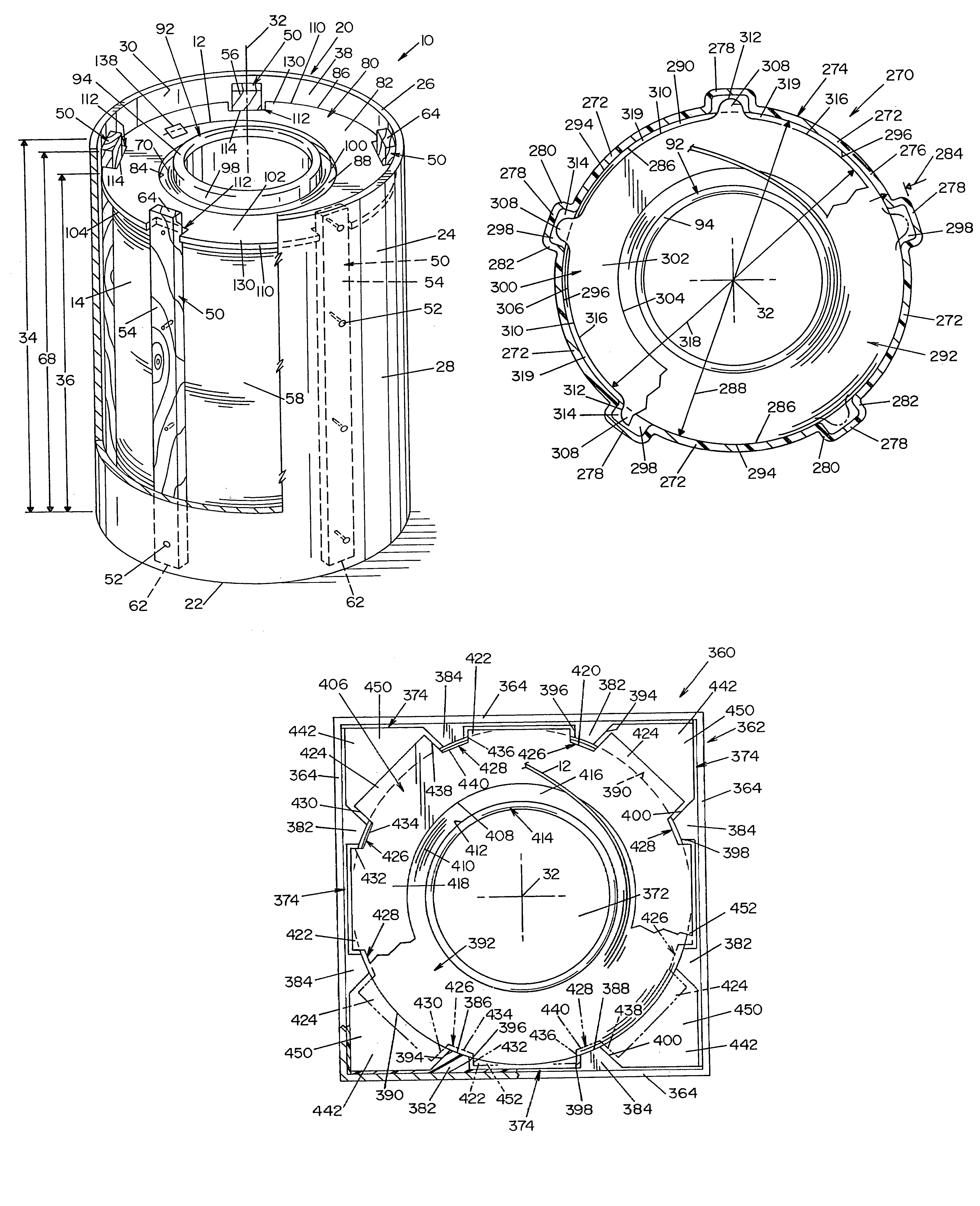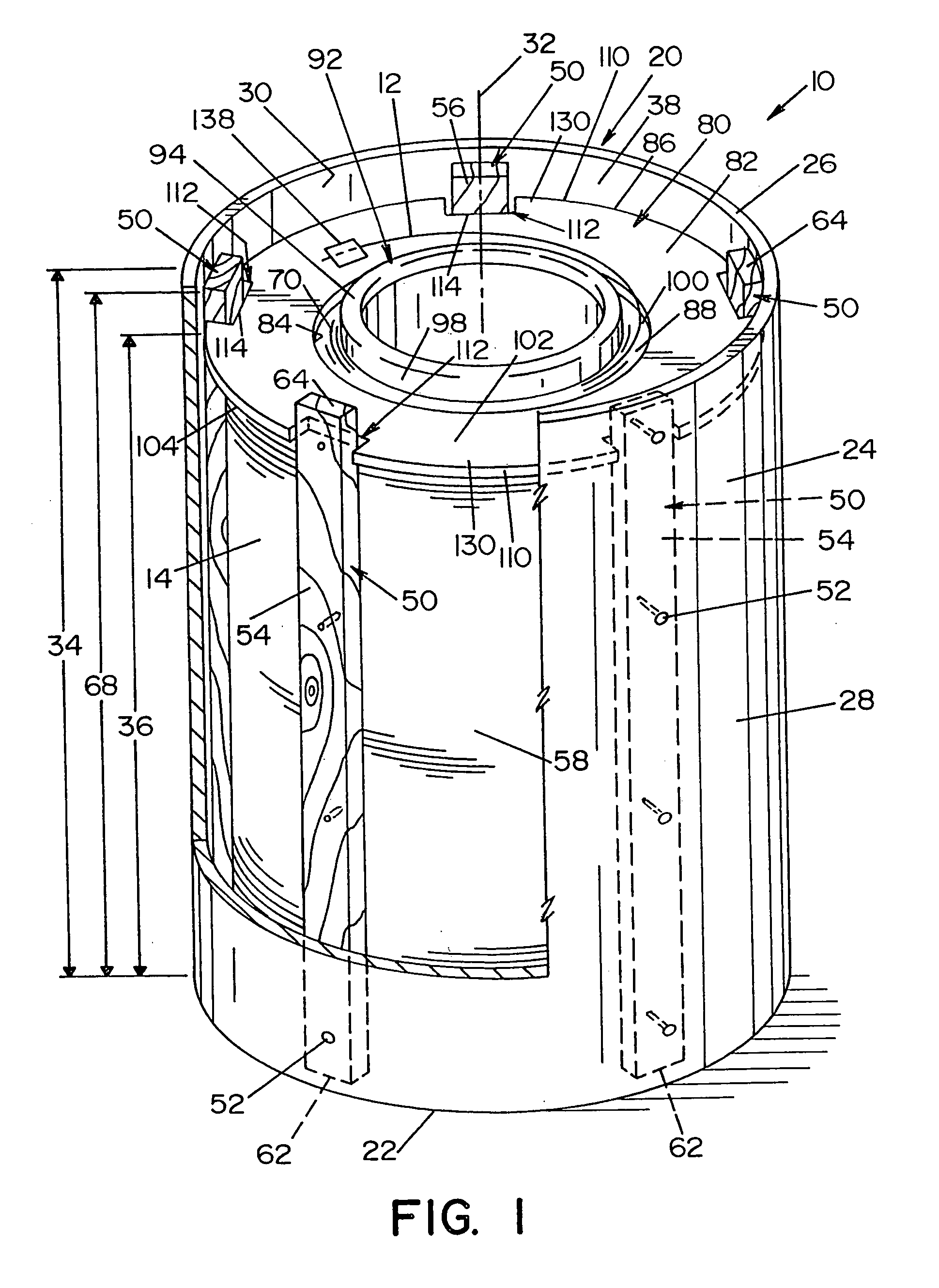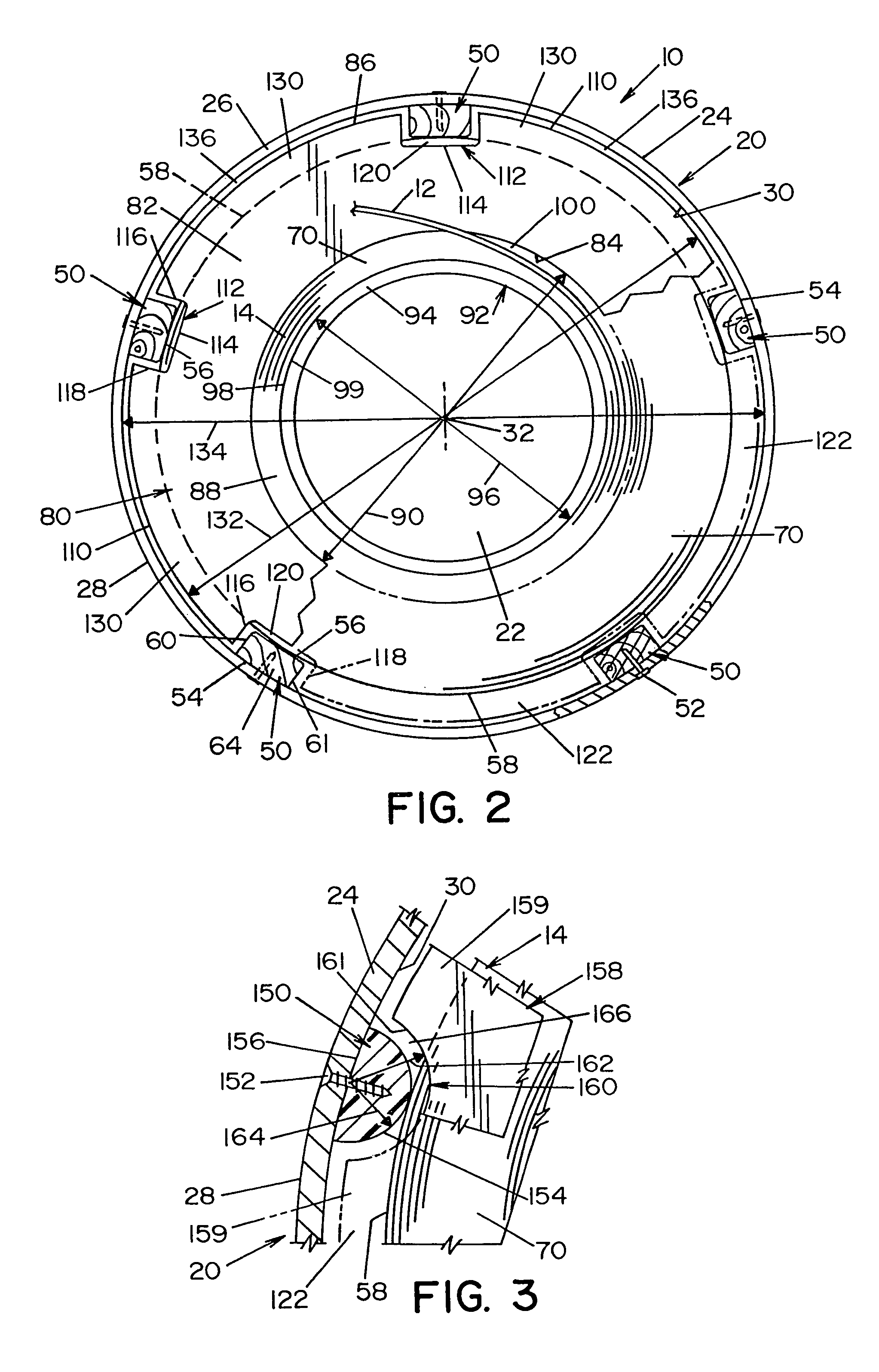Welding wire container with ribbed walls and mating retainer ring
a technology of retaining rings and wire containers, which is applied in the direction of tray containers, manufacturing tools, transportation and packaging, etc., can solve the problems of reducing production yield, adversely affecting the welding process, and shutting down an entire manufacturing line, so as to prevent convolution, reduce manufacturing costs, and reduce the effect of ring jamming
- Summary
- Abstract
- Description
- Claims
- Application Information
AI Technical Summary
Benefits of technology
Problems solved by technology
Method used
Image
Examples
Embodiment Construction
[0044]Referring now in greater detail to the drawings wherein the showings are for the purpose of illustrating preferred embodiments of the invention only, and not for the purpose of limiting the invention, FIGS. 1 and 2 show a welding wire package 10 for containing and dispensing a continuous wire 12 of a wire coil 14. Package 10 includes a drum style carton or container 20 having a bottom 22 and a single outer wall 24 extending from bottom 22 to a top edge 26. As can be appreciated, drum 20 can be any type of drum know in the industry including fiber drums, plastic drums and / or sheet metal drums. Outer wall 24 has an outwardly facing surface 28 and an inwardly facing surface 30 and is substantially coaxial to a coil axis 32. Drum 20 is preferably a cardboard drum, however, the drum can be made from any suitable material known in the art. Outer wall 24 has a height 34 which is slightly greater than coil height 36. Drum 20 is shaped to receive wire coil 14 in a coil receiving recess...
PUM
 Login to View More
Login to View More Abstract
Description
Claims
Application Information
 Login to View More
Login to View More - R&D
- Intellectual Property
- Life Sciences
- Materials
- Tech Scout
- Unparalleled Data Quality
- Higher Quality Content
- 60% Fewer Hallucinations
Browse by: Latest US Patents, China's latest patents, Technical Efficacy Thesaurus, Application Domain, Technology Topic, Popular Technical Reports.
© 2025 PatSnap. All rights reserved.Legal|Privacy policy|Modern Slavery Act Transparency Statement|Sitemap|About US| Contact US: help@patsnap.com



